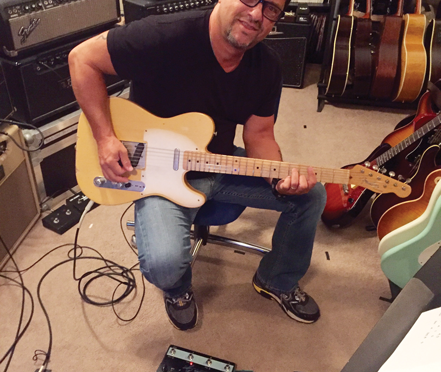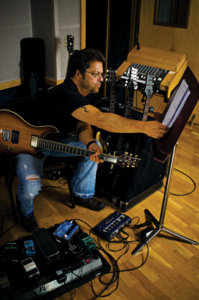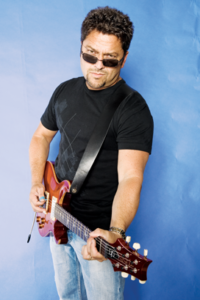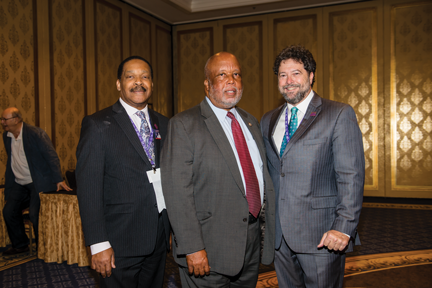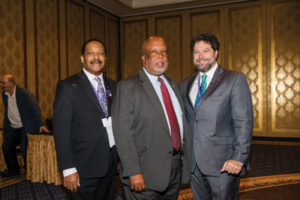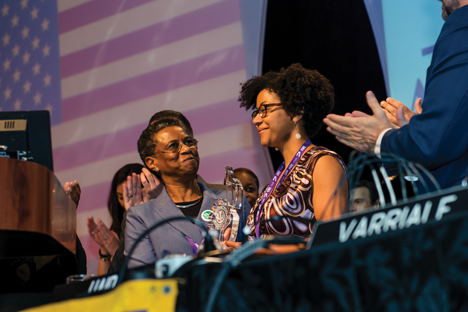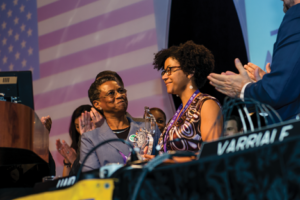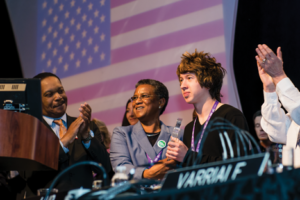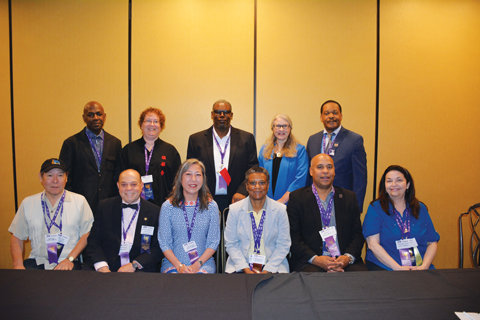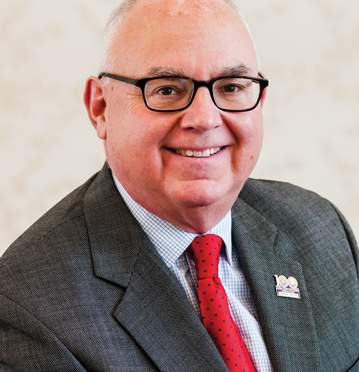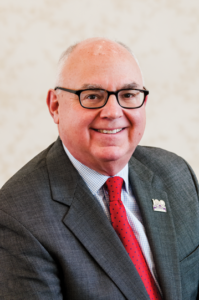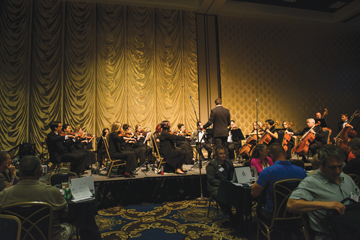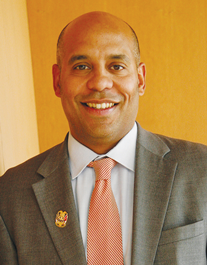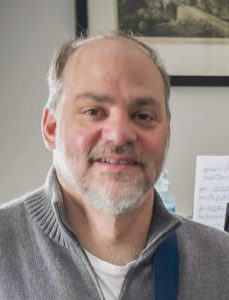 by Tony D’Amico, Theatre Musicians Association President and Member of Local 9-535 (Boston, MA) and Local 198-457 (Providence, RI)
by Tony D’Amico, Theatre Musicians Association President and Member of Local 9-535 (Boston, MA) and Local 198-457 (Providence, RI)
The Theatre Musicians Association’s 21st annual conference was held mid-August in Washington, DC. At the end of the conference, I had the honor of being elected president of the Theatre Musicians Association (TMA). After serving 10 years as director of the Boston chapter, I couldn’t be more thrilled to step into this new role and serve this remarkable organization.
On behalf of all my fellow theatre musicians, I’d like to offer my thanks and congratulations to outgoing president, Tom Mendel of Local 10-208 (Chicago, IL), and Vice President Walter Usiatynski of Local 802 (New York City) for their inspired leadership these past years. They leave some very large shoes to fill.
One of my first duties as president was to attend a week of negotiations in New York City between the AFM and the Broadway League/Disney Theatrical Productions for a successor agreement to Pamphlet B and the Short Engagement Touring Theatrical Musicals Agreement (SET), which occurred in September. Along with the typical proposals for increased wages and per diem, we asked for an assortment of increases and improvements for our traveling musicians to recognize the value these players bring to the touring musical theatre productions they enhance.
Among the items we put across the table for both Pamphlet B and the SET Agreement were an increase in rehearsal rates, and a provision that would make all weekly contractual wages and premiums pensionable. Other issues of importance were electronic instrument premiums—to address technology being operated by drummers and guitarists—as well as wage increases, and travel and hotel concerns.
In the SET agreement, we are seeking wage and rehearsal increases, as well as raises in vacation pay and pay for those who double or play more than one instrument in the pit. One pressing issue discussed regarded local keyboard substitutes hired by touring musical productions. These local keyboard players are called in to sub on increasingly difficult keyboard books, with no additional compensation for the huge amount of time they put in to prepare these books.
While we did not reach a deal in these September sessions, AFM President Ray Hair made a strong case for paying our musicians wages and benefits that correspond to the value they bring to these productions. We have excellent input from all the AFM representatives on our side of the table, with special recognition to AFM Touring/Theatre/Booking Division Director Michael Manley and Contract Administrator George Fiddler, and valuable contributions from Player Representatives Michael Epperhart of Local 802 and Joshua Priest of Locals 802 and 149 (Toronto, ON).
We meet again in November to continue our discussions. I’m confident that in the end we will emerge with a fair contract that provides the security and compensation that these hardworking musicians deserve.





